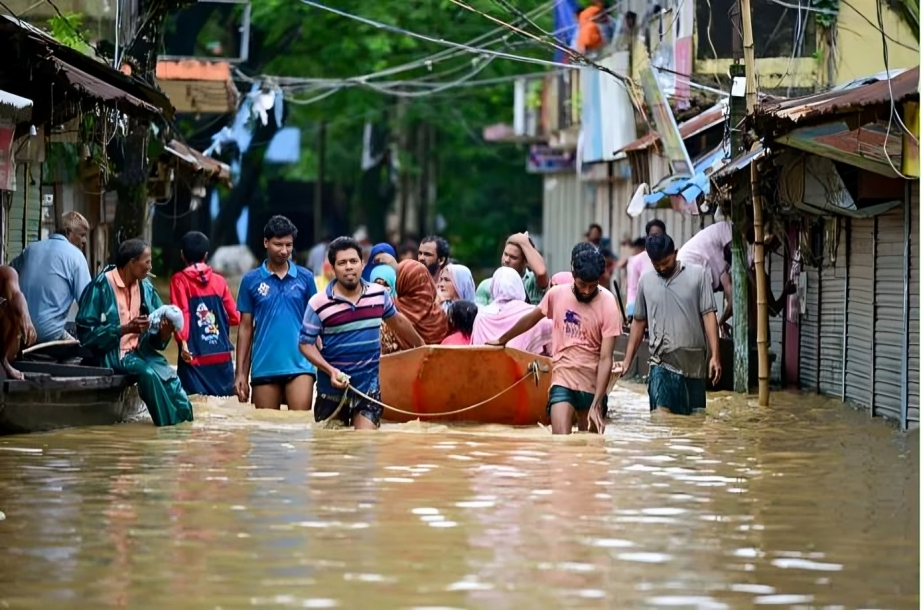Severe floods, triggered by relentless monsoon rains and overflowing rivers, have claimed the lives of at least 23 people in Bangladesh and left 1.24 million families stranded across 11 districts, officials reported on Monday.
As floodwaters recede at a sluggish pace, the situation remains dire for the 5.7 million people affected, many of whom are isolated and in desperate need of food, clean water, medicine, and dry clothing. Remote areas, where blocked roads have hindered rescue and relief operations, are particularly vulnerable.
The Bangladesh Meteorological Department has warned that flood conditions could persist if monsoon rains continue, as water levels are dropping very slowly. Approximately 470,000 people have sought refuge in 3,500 shelters in the flood-hit districts. The government has deployed around 650 medical teams, with the army, air force, navy, and border guards assisting in rescue and relief efforts.
Vast tracts of land remain submerged, posing a significant threat to crops if floodwaters do not recede soon, according to agriculture ministry officials. A 2015 analysis by the World Bank Institute estimated that 3.5 million people in Bangladesh—one of the world’s most climate-vulnerable countries—are at risk of annual river flooding. Scientists link the increasing severity of such catastrophic events to climate change.
Farah Kabir, Director of ActionAid Bangladesh, emphasized that countries like Bangladesh, which have minimal emissions and resilient populations, urgently need financial support to address the impacts of climate change and the increasing frequency of natural disasters. “We need to recover from the losses and damage we’ve faced, build resilience to future impacts, and pursue green development pathways.”
In Noakhali, one of the worst-hit districts, 56-year-old Shukuri Begum lost her home as it was swept into a pond by the floodwaters. Terrified, she fled with her grandchildren to a neighbor’s house, but could not stay long due to safety concerns. “I have a son with physical disabilities, and we couldn’t bring him with us. I don’t know what’s waiting for us,” she told ActionAid.


Comments are closed, but trackbacks and pingbacks are open.